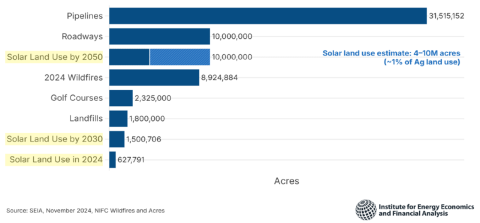IEEFA U.K.: Suspension of £3.8 billion capacity market is an opportunity for re-think
LONDON—The European Court of Justice’s decision yesterday to suspend Britain’s capacity market creates an opportunity to focus on more cost-effective and forward-looking solutions for safeguarding the country’s energy-supply security.
We’ve argued previously that Britain’s capacity market. which has served as a model for a similar scheme in Poland, provides subsidies that may no longer be needed to energy incumbents, principally existing gas, coal and nuclear power plants.
In a surprise ruling on Thursday, the court ruled that the European Union’s executive incorrectly approved the U.K. scheme in 2014, failing to investigate properly its impact on the wider energy sector.
The case was brought by companies that specialise in demand side response (DSR), which helps reduce electricity demand at times of system stress. The companies had argued that Britain’s capacity market unfairly favours providers of electricity generation over DSR.
Britain introduced the capacity market to boost investment in the conventional U.K. energy sector,to provide back-up for rapid growth in wind and solar power, and to cope with expected rapid falls in coal generation due to coal phaseout plans.
The capacity market has provided an entirely new, regulated source of revenue for conventional power plants as well as providers of storage, DSR and interconnection. Capacity markets sell, via auction, contracts for these energy companies to make generating capacity available months or years ahead of delivery, regardless of whether they actually generate electricity.
Under the scheme, there have been seven such auctions, awarding a total of £3.8 billion.
Combining the results of these seven auctions, 83% of contracts have been awarded to existing generation, rather than new-build generation, and 72% have been awarded to gas, nuclear and coal power plants. In other words, the scheme has favoured incumbents, supporting centralised rather than distributed generation, perpetuating the grid that already exists, and favouring generation over DSR.
IN CONTRAST TO THESE SUBSIDIES, THE U.K. ALSO HAS INTRODUCED a number of reforms of existing energy markets, particularly in the balancing market run by the National Grid. I will mention just two of these reforms, which are intended to cut the cost of matching demand and supply of electricity in real time: First, participation in the balancing market will shortly be extended to aggregators of small-scale renewables and DSR with as little as 1MW of capacity. And second, also in the balancing market, charges have been increased for electricity suppliers and power plants that fail to match forecast demand or supply.
These reforms are different from the U.K.’s capacity market in three critical ways.
Subsidies to incumbent electricity-generation plants seem increasingly outdated.
First, by focusing on matching short-term demand and supply in real time that incentivises flexibility, a characteristic that will be the cornerstone of electric grids of the future.
Second, by operating via existing energy markets and using energy price signals that will drive efficiencies, in contrast to creating a new scheme and an extra cost that is passed to energy consumers.
Third, also by operating via energy markets, by driving innovation in an energy sector that is changing rapidly, especially as a result of digitalisation. Digitalisation will make both demand and supply more automated, local and connected—in a word more intelligent, and help cope with growth in distributed renewables and, soon, electric vehicles. We have seen rather little of such technologies rewarded after four years of capacity market auctions and £3.8 billion spent.
The U.K.’s energy ministry (BEIS, the Department of Business, Energy and Industrial Strategy) says that the new ruling will not affect its commitment to the capacity market, and that it will work to sort things out with the European Commission. It looks likely that it will have to tweak the scheme to favour DSR, which could be a good thing depending on how’s it done. Scaling back the scheme altogether may be better.
Gerard Wynn ([email protected]) is an IEEFA energy finance consultant.
RELATED ITEMS:
IEEFA Update: An Outdated U.K. Electricity Industry Subsidy
IEEFA Europe: Spain scraps solar tax in energy market shakeup that threatens coal















